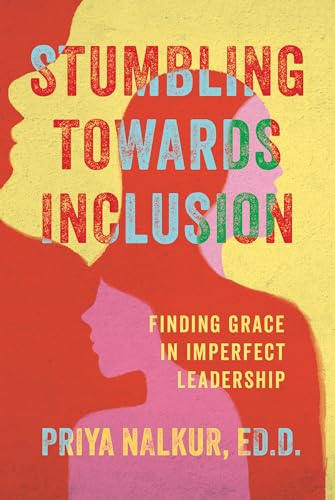Why it's 'crucial for leaders to model vulnerability' to create safer environments

Today’s workplace is evolving into more than just a space for professional tasks. It's becoming a forum for discussions on politics, culture, and personal values. Considering this transformation, the concepts of diversity, equity, and inclusion (DEI) are gaining prominence, with a profound connection to psychological safety within organizations.
Priya Nalkur, president of the Roundtable Institute and author of the forthcoming book ‘Stumbling Towards Inclusion: Finding Grace in Imperfect Leadership’ sheds light on this intersection. Nalkur is a proponent of fostering inclusive, psychologically safe workplaces, while acknowledging the inherent challenges and the need for continuous learning and growth.
"At the Roundtable Institute, we've been running the Jedi for Leaders program—Justice, Equity, Diversity, and Inclusion—for years," Nalkur explains. "Our goal is to help leaders create environments where everyone feels valued, safe, and worthy."

Nalkur's book comes at a critical juncture, particularly against the backdrop of escalating political polarization, with a U.S. election taking place this year, and a federal election expected in Canada in 2025. Nalkur says the intertwining of politics and culture affects workplace dynamics significantly, raising concerns about maintaining psychological safety amid differing viewpoints.
"In today's polarized environment, people want to bring their whole selves to work," Nalkur observes. "But this can be daunting, given the heightened tensions and the risk of discord."
To address these challenges, Nalkur advocates for formal processes and communication protocols that facilitate respectful dialogue. She stresses the importance of creating spaces where employees feel safe to express their perspectives without fear of retribution or judgment.
"Effective communication protocols and operating norms are essential," Nalkur affirms. "We need systems in place that enable constructive conversations while upholding mutual respect and dignity."
Yet, for many C-suite executives and health and safety professionals, fostering such dialogue may seem counterproductive. Nalkur acknowledges these concerns but calls it a challenge that needs to be met with a focus on evolution and courage in leadership.
"It's normal to feel intimidated," she says. "But it's crucial for leaders to model vulnerability and resilience, acknowledging mistakes and embracing growth."
Central to Nalkur's message is the idea of "stumbling" towards inclusion—an acknowledgment of inevitable missteps on the journey towards creating inclusive workplaces. She says leaders need to recognize these stumbles, reflecting on their causes, and learning from them to progress.
"We're all bound to stumble along the way," Nalkur asserts. "But it's how we navigate these stumbles that defines our path forward."
In the face of uncertainty and complexity, Nalkur's advice is a reminder that progress requires resilience, empathy, and a commitment to learning and adaptation. As workplaces continue to evolve, the pursuit of diversity, equity, inclusion, and psychological safety remains paramount ir organizations truly aspire to create a more equitable future.
"Don't let the stumble stop you,” encourages Nalkur. “Keep walking, keep going forward. Embrace growth and strive for a workplace where everyone feels valued and respected."
With so much division in society, it’s important for leaders to acknowledge our shared humanity, the transformative power of empathy and understanding, while always making sure team members recognize they are working towards a common goal.





